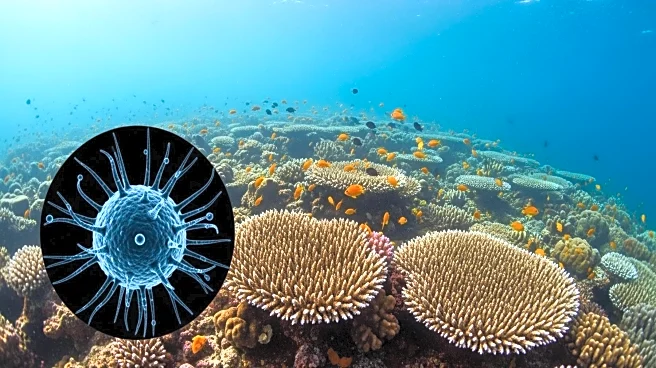What's Happening?
Prochlorococcus, a cyanobacteria and the most abundant photosynthesizing organism in the ocean, is facing potential decline due to rising ocean temperatures. These microbes, which thrive in tropical waters, are crucial for marine ecosystems as they supply nutrients up the food chain. A study led by François Ribalet from the University of Washington reveals that Prochlorococcus prefers water temperatures between 66 and 86 degrees Fahrenheit. However, climate models predict that subtropical and tropical ocean temperatures will exceed this threshold within the next 75 years, potentially reducing Prochlorococcus productivity significantly.
Why It's Important?
The decline of Prochlorococcus could have profound impacts on marine ecosystems, as these microbes play a vital role in global photosynthesis and carbon cycling. A reduction in their population could lead to less carbon and food availability for marine life, affecting the entire food web. This scenario underscores the broader implications of climate change on oceanic biodiversity and the stability of marine ecosystems, which are essential for global ecological balance and human industries reliant on marine resources.
What's Next?
Researchers are continuing to study Prochlorococcus to understand its adaptability to changing temperatures. The study suggests that Prochlorococcus may shift its habitat towards the poles, altering subtropical and tropical ecosystems. Further research is needed to explore potential heat-tolerant strains and their ability to sustain marine food chains. The findings call for increased attention to climate change mitigation to preserve marine biodiversity.










